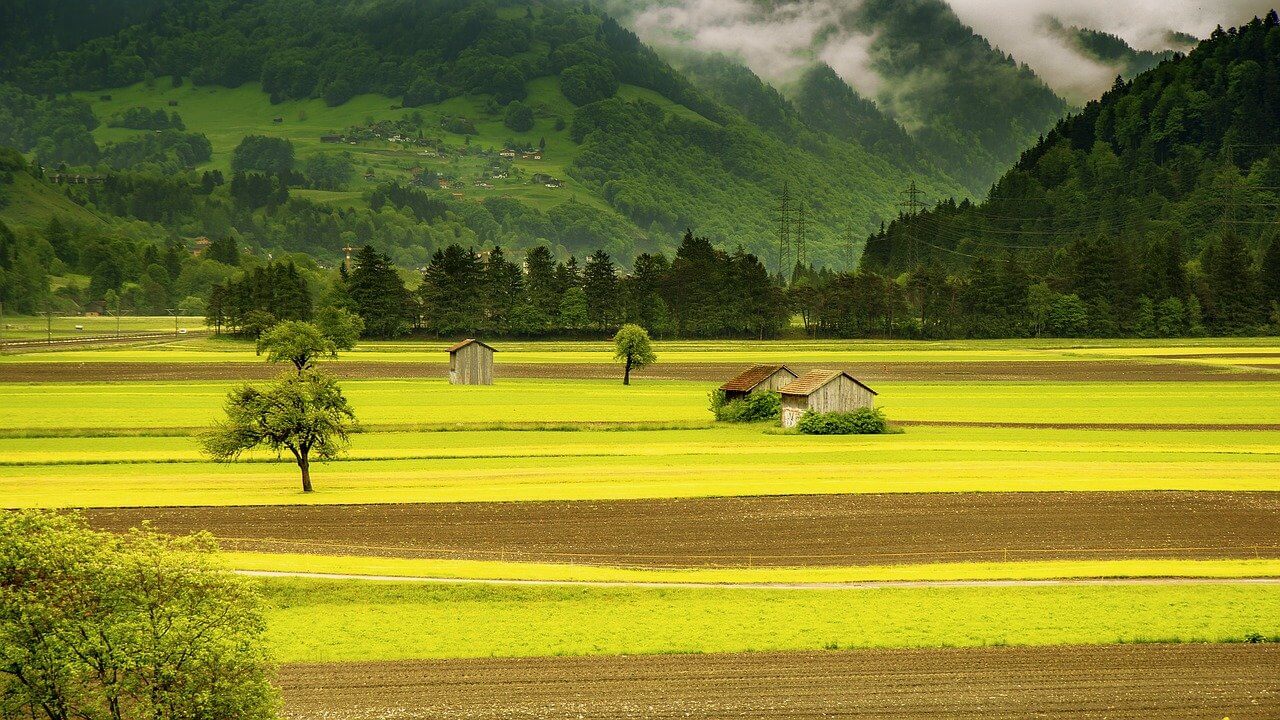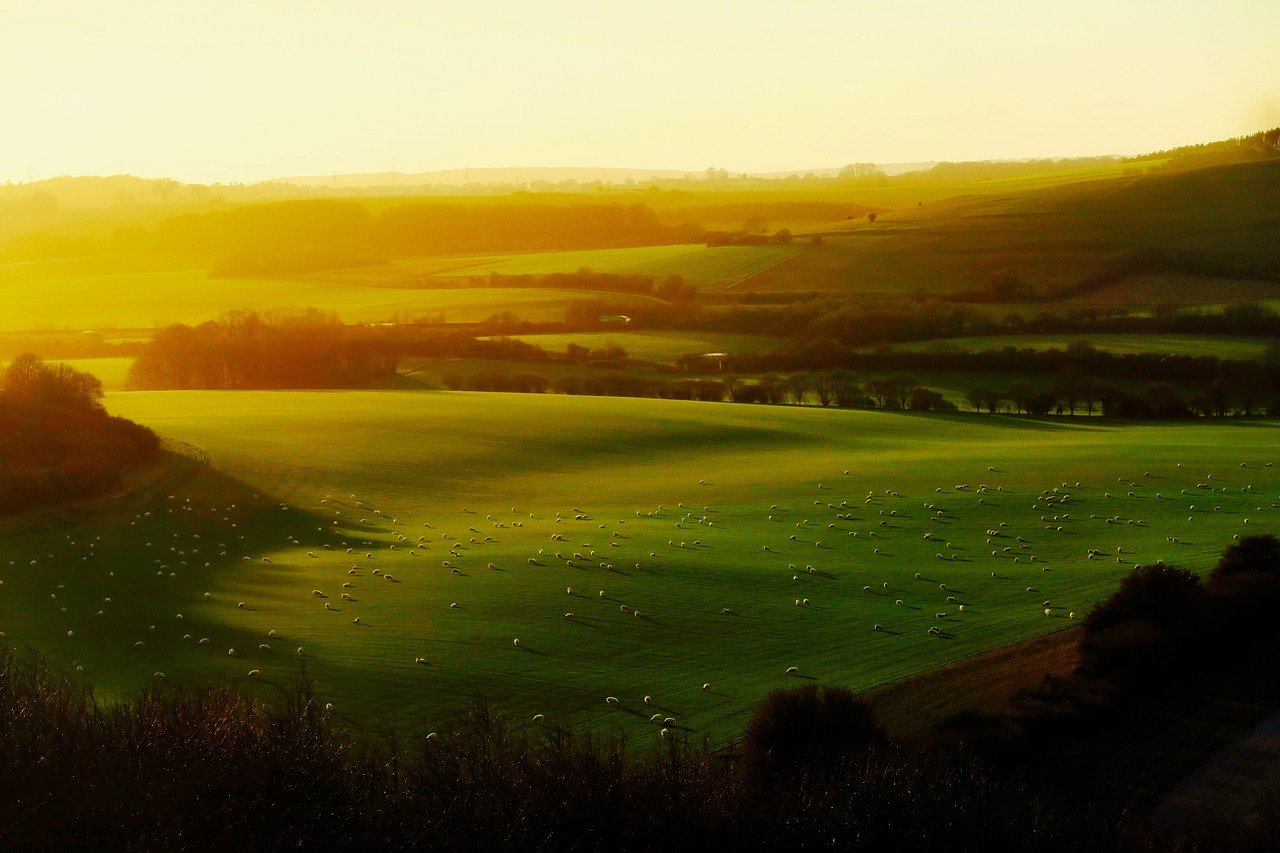If you’ve been thinking of buying a home in the country with some property, you may naturally be considering starting a hobby farm. Even if you have never had any experience raising livestock or growing crops, this can be an attractive lifestyle. What do you need to do to get started with hobby farming, and where’s the best place to start a hobby farm? Also, which is the best state to start a farm in the US?
In this article, we address these concerns and more. Read on to learn more.
What You'll Learn Today
What Are The Best States For Starting A Farm?

One of the best ways to determine where to purchase your property for starting a hobby farm is to get in touch with the state and county departments of agriculture. Getting to know your county agent is a great way to find out about the pros and cons of establishing a hobby farm in any given area.
If you’re in the contiguous United States, you may feel overwhelmed by the idea that you need to check out farm properties in 48 different states. Luckily, this is actually true. The 48 contiguous states are not all equally suited for hobby farming.
When it comes to farming, there are actually 10 states in very different parts of the nation where fairly reasonably priced land can be found that is quite suitable for small farming along with a good number of resources to help beginning hobby farmers, along with a thriving demand for fresh agricultural products.
Take a look at these 10 states:
1. California
The sunny state of California has always been an excellent place for farming. The state has a temperate climate that is just right for growing crops.
Additionally, with California’s mild winters you can enjoy pleasant outdoor living for most of the year without spending a great deal of money on heating in the wintertime.
2. Iowa
While California has the highest food production in the nation, Iowa runs 2nd. Iowa is well known as a farming state, and there’s lots of good land for sale in Iowa.
3. Indiana
If you want to grow corn and/or soybeans, there’s no better place than Indiana. All sorts of homegrown veggies also grow well in Indiana.
4. Nebraska
Another big farming state is the state of Nebraska. With plenty of wide open spaces, it’s easy to find good land in the state to grow just about anything your heart desires.
5. Texas
Farming and ranching have always been big in Texas, and there is still plenty of good land available for purchase. Hay, wheat, soybeans, cotton and corn are common crops grown in the Lone Star state.
Livestock choices include the classic cattle, horses, goats, sheep and pigs. If you prefer more exotic livestock, there are also plenty of emu farmers and people raising bison, zebras and the like.
6. Kentucky
If you’re thinking of raising horses or cattle, Kentucky is a great place for grazing land. Farmers in Kentucky also grow grain, such as wheat, barley and corn. Soybeans and tobacco are popular crops in Kentucky.
7. New York
If you tend to have a New York State of mind, you can purchase farmland in upstate New York, or you can even live in the Big Apple and try your hand at urban farming.
While we tend to think of the state of New York as being quite populated, the fact is you can easily find good farmland among the 7 million or so acres currently available.
8. Michigan
If you enjoy cold and snow and like the idea of selling Christmas trees, you may want to settle in Michigan. In addition to picturesque, snowy winters, this state also offers 3 other distinct and enjoyable seasons. In Michigan, you can profitably produce hay, wheat, sugar beets, soybeans and more.
9. New Mexico
With inexpensive farmland ($550 an acre) and lots of enchantment, New Mexico may be just the place for you. Although water availability is quite challenging, if you adjust your expectations and your crop and livestock choices accordingly you can do very well hobby farming in New Mexico.
10. Vermont
The very small state of Vermont has a very high percentage of farmers, and lots of farmers’ markets. People in Vermont are dedicated to purchasing locally sourced food, so hobby farmers can do quite well in this charming state.
What Is The Best State For You To Homestead In?
Research and legwork will reveal the right location for your homestead. Once you’ve narrowed down your choices, you’ll naturally want to visit prospective properties in person.
When you do, make it a point to meet your potential neighbors and talk with them about any problems they may have been encountering in regards to hobby farming.
Where’s The Best Place To Start A Farm?
Keep these 9 considerations in mind when choosing the right place for your hobby farm:
1. If you’re going to keep livestock, you’ll naturally need to be able to provide:
- Clean, Fresh Wate
- Ample Feed and Grazing
- Safe, Sturdy Shelter
2. You’ll need to be sure that the foundation for all of these necessities (i.e. the land) is safe and sturdy and has good drainage. These qualities make it possible to grow healthy crops and grazing and to build fencing and shelters that will stand firm against the elements.
3. In addition to the structure of the soil, you’ll also want to evaluate its quality. Contact the local county agent to conduct forage and soil testing and help you determine whether or not the property you have in mind will support the number and type of animals you wish to keep.
4. As you look at land for sale, cast a judicious eye over the property itself and any existing outbuildings. Talk with the seller about what the outbuildings have been used for in the past, and determine whether or not they will be suitable for your plans.
Understand that buildings that have been designed to keep small animals such as chickens, pigs, goats and sheep will not be suitable for larger animals such as cattle, horses or extra-large poultry such as emus.
You’ll also need a sturdy, watertight building in which to keep the supplies. Your hay and feed barn should have strong, locking doors to keep wayward stock from entering and consuming your stores.
5. In addition to the size and height of buildings, you’ll also need to consider whether or not existing outbuildings are or can be insulated and heated during the winter months.
Most larger livestock do not need heating, but insulation is always a good idea. Safe, sturdy flooring is also an important consideration.
6. Evaluate the fencing. Fences that are appropriate for one type of livestock may not be appropriate for another. Fencing is an expensive addition to any property.
If you can find a property that has good, suitable fencing in place, you’re ahead of the game. Good fencing makes good neighbors and safe livestock.
7. No matter where your chosen property is located, you’ll want to be sure that it has a reliable, ample source of water. In the best case scenario, running water (e.g. a spring, stream or river running through) is most desirable.
Alternatives include stock ponds or water tanks and troughs to be replenished with rainwater and/or filled with well water, water provided by a public utility or carted in. Be sure that you will have access to plenty of water for the stock you plan to keep on hand and the crops you intend to grow.
Understand that large stock, such as horses can drink up to 100 gallons of water daily. Remember that you’ll also need to have plenty of water for your household.
8. If you plan on keeping livestock, you’ll want to be sure to have ample grazing area. Horses, cattle, sheep and goats all need some grass; although goats and sheep can also do well with wooded and brushy areas. Having plenty of good, rich grass saves you a great deal of money in feed and hay.
9. Scope out local resources, such as feed stores and hay suppliers. Although grass is essential to keeping livestock healthy, you’ll also need to be sure to have a reliable, consistent supplier of feed and hay.
Take Your Time Choosing Your Homestead Location

Starting up a homestead or hobby farm may seem like a big task, and it is. On the upside, it’s a task that you and your family will enjoy, which will challenge you and bring you interest for a lifetime while providing you a peaceful, safe and secure place to call home.
It might be difficult, but is it possible to find any good play to farm in Alaska?
Dave, I’m not sure about that, but a good place to start your search might be the state of Alaska Division of Agriculture website. It appears to have a great deal of information about markets, grants and other valuable resources for farming in the Alaskan interior. It is: http://dnr.alaska.gov/ag/
What do think about Hobby farming in Oregon? Any towns that are better than others?